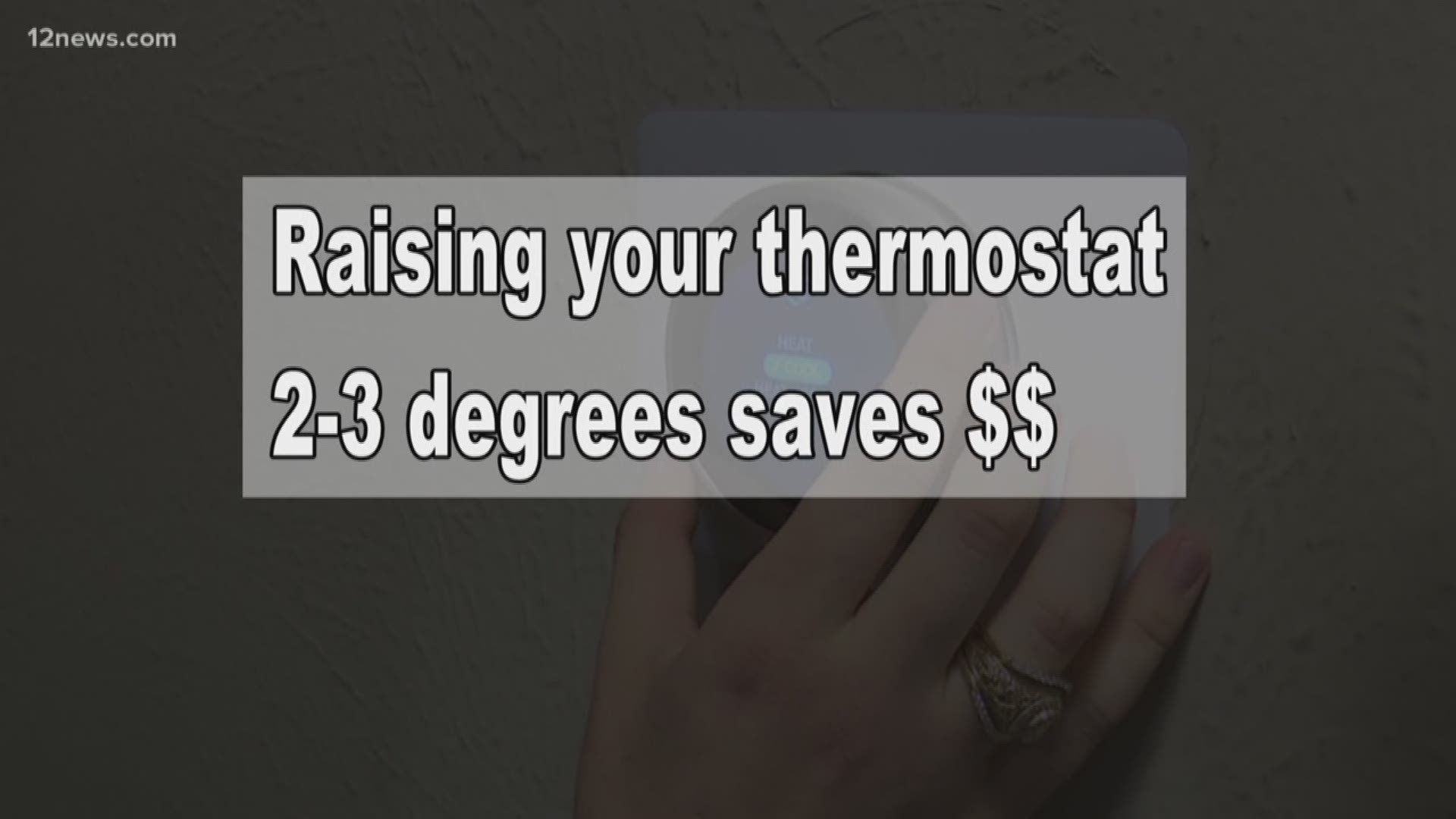PHOENIX - It's one of the oldest battles between couples: the never-ending squabble over the thermostat.
Who gets temperature controlling rights? And do a few degrees really matter when it comes to paying your bill at the end of each month?
Whether you're married, live with family or have roommates, it's very likely that you have had to fight to heat or cool your home at one point or another because you want to be comfortable or save money.
It turns out, that just a degree or two difference in temperature makes a big difference in your heating or cooling bill. Even though it can take a fiery debate for all parties to agree on a degree, comfort level isn't the only consideration to make.
Casaundra Donahoe with SRP says the temperature inside of your home can affect your bill in a huge way. Raising the thermostat just two to three degrees in the summer can help your wallet. "You can save two to three percent on your overall cooling costs," Donahoe said.
And at APS, a spokesperson says raising your thermostat by one degree saves two to three percent on energy cooling costs.
So, if your August APS bill is $200, APS says an average customer's cooling costs from that total is $90. That means you can save between $1.80 and $2.70 a month by raising the temperature one degree and as much as $9.00 to $13.50 by raising the temperature five degrees. The tough part is reaching that happy medium.
"78 degrees is the ideal temperature to save money, but we understand that's not ideal for everyone," Donahoe said.
Both SRP and APS recommend their price savings plans to help. You can also run fans counterclockwise to make it feel up to five degrees cooler.
APS says there are many other ways to cool your home without touching the thermostat:
- Program your thermostat to turn up the temperature when you are not home
- Close curtains and blinds during the day
- Have your air conditioning serviced yearly to ensure it operates efficiently
- In addition to turning up your thermostat up a few degrees, when on vacation, turn it up a few more
- Switch to LED lighting
- Consider adding shade screens to your windows
- Add shade trees to help block the sun's heat. Plant low water use shade trees in front of south, east or west facing windows to keep sunlight from heating up your home in the summer months
- Tightly caulk around windows, doorframes, sill pates and wherever air might leak through exterior walls, floors or ceiling
- Reduce the use of your oven, try to microwave instead
- Turn off unnecessary lights and appliances
- Change your air filters monthly to improve performance and efficiency of your air conditioning

